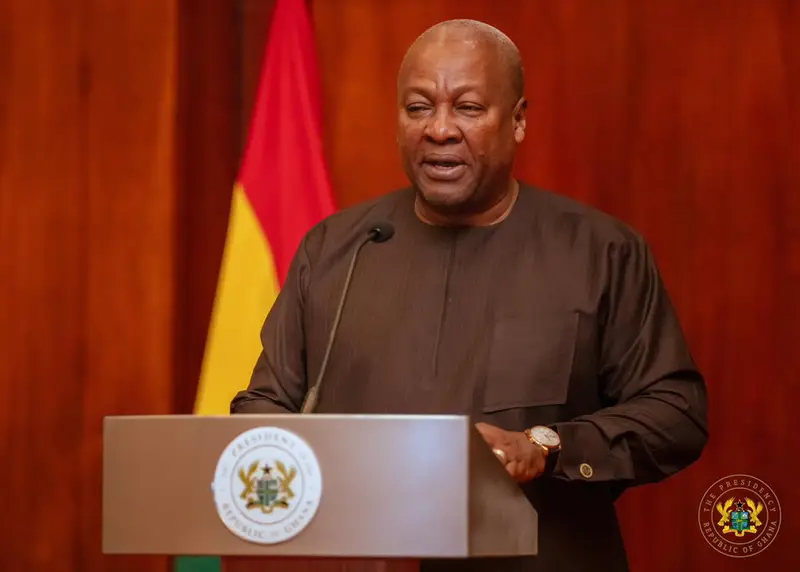President John Dramani Mahama has ruled out declaring a state of emergency in the ongoing fight against illegal mining, popularly known as galamsey.
Addressing civil society and faith-based organisations at a stakeholder engagement in Accra, the President said the National Security Council had advised that the battle could be won through the current legal and security structures already in place.
“Yes, I have the power to do it, but the President acts not only on his authority but also on the advice of the National Security Council—and as of now, the National Security Council believes that we can win the fight against galamsey without a state of emergency.”
The President stressed, however, that should circumstances demand, he would resort to his constitutional authority, and not hesitate to declare a state of emergency if the security leadership made such a recommendation.
He underscored his administration’s determination to end the galamsey menace, assuring Ghanaians that the government was neither complacent nor complicit. He rejected claims that political figures benefit from ongoing galamsey operations, saying he had no personal or political interest in the practice.
“We have nothing to hide,” he stated, while explaining that the government’s approach combined enforcement with reforms, prosecutions, and rehabilitation of degraded lands. These efforts, he said, were beginning to show progress despite the entrenched interests of illegal miners and the destruction they leave behind.
However, he emphasised that the fight could not be won by the government alone, assuring stakeholders that his administration would continue to partner with civil society organisations, religious leaders, and local communities in shaping a collective response.
“You can be sure that we’re all on the same side. And we will continue to do this together,” he said, calling for a spirit of unity in addressing the crisis.
This assurance was particularly aimed at dispelling public skepticism, as many advocacy groups have voiced frustration over what they see as inadequate government action despite repeated promises.
In a candid exchange, the President welcomed the growing civic pressure on the government to intensify its response, acknowledging that such scrutiny was necessary to keep leaders accountable.
“Your contributions, your criticisms, your pressure – putting fire under our feet – we don’t have any problem with that,” President Mahama declared, urging civil society to remain active, as he positioned advocacy not as opposition but as an essential partner in achieving environmental justice.
The President’s remarks came against a backdrop of renewed calls from organisations such as the Ghana Catholic Bishops’ Conference which demanded stronger legal action, including the “prosecution of kingpins and the establishment of fast-track courts,” to deal with environmental crimes.
These groups argued that without concrete benchmarks and visible results, Ghana’s forests, rivers, and farmlands will continue to suffer irreversible damage.
The President’s response sought to reassure such stakeholders that his administration was not only listening but also acting. By refusing to declare a state of emergency, he projected confidence in existing mechanisms while leaving the door open to more drastic measures should the situation worsen.
The fight against galamsey continues to test the government’s resolve and credibility. For President Mahama, the challenge lies in demonstrating progress while navigating the political, social, and economic complexities tied to the illegal trade. His insistence on transparency and his call for civic partnership mark a deliberate effort to bridge the gap between state action and public expectation.
As illegal mining remains one of the most pressing threats to Ghana’s environment, President Mahama’s words point to a strategy anchored in legal authority, civic engagement, and measured escalation.
Whether this balance proves enough to end the menace will depend on both the government’s persistence and the unrelenting pressure of the society it serves.
By Nelson Ayivor


